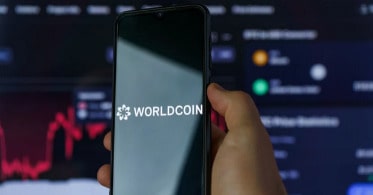Worldcoin has announced the addition of data privacy protection features, apparently in response to allegations that minors’ biometrics had been collected in Portugal. The company continues to face privacy challenges, meanwhile. In Argentina, privacy concerns are rising as more people submit their irises to Worldcoin in exchange for crypto, while in Chile, an appeal to reopen a lawsuit against the company has been denied.
Worldcoin detailed new updates to improve transparency and personal power over data in a blog announcement. Users can now un-verify their World IDs through permanent iris code deletion, which could satisfy compliance with GDPR’s “right to be forgotten.”
A user can request to have data deleted from their device. After requesting data deletion, a person’s World ID will be invalid and a 6-month “cool off” period will begin to ensure someone can’t immediately re-verify. After this period, the code will be permanently deleted.
Moreover, the addition of in-person age verification will prevent minors from participating. No data will be recorded or stored from the check.
These changes are based on assessments by data protection authorities like the Bavarian State Office for Data Protection Supervision, which is responsible for ensuring Worldcoin’s compliance with GDPR.
Worldcoin takes off in Argentina, question of data protection remains
In Argentina, thousands are submitting iris scans in exchange for Worldcoin tokens as part of an initiative, but some worry about data protection implications, according to France 24.
Almost five million people have submitted their irises to Worldcoin. Half a million Argentine citizens, or 1 percent of the population, have participated in the project at one of 250 Worldcoin sites in the country since the project launched in July, with economic hardship further incentivising people to engage.
Natalia Zuazo, director of the digital consulting firm Salto Agencia, said Worldcoin got more sign-ups in “countries in crisis… the poorest countries, because people are more likely to enter into such transactions.” No evidence was offered to support the claim, and Worldcoin orbs have registered people in cities like New York, Tokyo and Barcelona.
Today, Argentina faces a 200 percent inflation rate, says France 24. Participants received 10 tokens, valued at roughly $70 at the time of writing this article. “They just do it out of necessity,” said Zuazo.
The project is an initiative to develop a digital identification system that uses irises to secure online transactions. Those submitting iris scans do not provide their name, address, phone number, or any other information. The company says iris data is encrypted and will never sell personal data.
But many countries have halted the project pending investigations due to privacy concerns. Portugal is in the middle of a 90-day suspension of Worldcoin’s biometric collection. Spain has temporarily banned Worldcoin to ensure its compliance with the GDPR. At the end of December, operations in Kenya resumed after negotiations between the company and national government.
Argentina’s Agency for Access to Public Information said it is looking into Worldcoin’s security standards to see if they offer enough privacy protections but has not made a ruling or suspended data collection.
Chile Court denies appeal
In Chile, the Court of Appeals denied an appeal against Worldcoin that argued the company violated the Neurorights Law through Worldcoin’s iris data collection, according to CNN Chile.
On March 13, Moisés Sánchez submitted his biometrics through the Worldcoin stand at Mall Marina in Viña del Mar. In an interview with CNN Chile, he claims that the terms and conditions had “unclear objectives.”
March 21, the Audit Chamber of the Court of Appeals of Valparaís decided not to admit the action, arguing the protection appeal “does not describe facts that could constitute a violation of constitutional guarantees protectable in this way.”
“It is necessary for the company to stop the capture of irises for money, and to establish safeguards to guarantee that minors cannot participate in the platform,” said Sánchez after his appeal was deemed inadmissible.
Article: Worldcoin adds privacy protection and age restriction, criticized in LATAM
